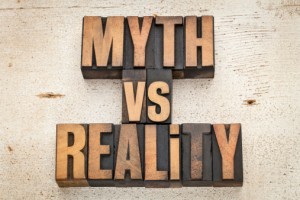Nausea after eating: Causes and treatment
 Nausea after eating and stomach pain can occur for numerous reasons. Identifying those causes can help you minimize the discomfort you experience after a meal. Nausea after eating can range from mild and temporary to severe and even chronic. In some cases, nausea after a meal can signal a serious health problem that requires medical attention.
Nausea after eating and stomach pain can occur for numerous reasons. Identifying those causes can help you minimize the discomfort you experience after a meal. Nausea after eating can range from mild and temporary to severe and even chronic. In some cases, nausea after a meal can signal a serious health problem that requires medical attention.
Along with nausea, you may experience other symptoms such as excess saliva, dizziness, and stomach pain. Here are some common causes of nausea after eating you should be aware of in order to narrow down what could be causing you that post-meal discomfort.
Causes of nausea after eating
Food poisoning: If something you ate wasn’t properly prepared or was contaminated, it can lead to food poisoning. Food poisoning can occur fairly soon after the meal. You will feel nauseous and may even vomit. The good news is, food poisoning is temporary and often doesn’t require medical attention as long as you drink enough fluids to prevent dehydration.
Viral gastroenteritis: This is a viral infection you can catch after eating contaminated food. Other symptoms include fever, diarrhea, and cramping abdominal pain. Once again, unless you become dehydrated or experience other complications like blood in stool, medical intervention is not required and all you need is rest and fluids.
Stress and anxiety: Stress and anxiety can negatively impact the gut. If you are stressed or anxious while eating, the associated hormones can disrupt the digestive processes and cause nausea.
Peptic ulcer: A peptic ulcer is commonly caused by H.pylori. After a meal, a person with a peptic ulcer can experience a burning sensation along with nausea. A healthy diet and smoking cessation can help reduce the symptoms. Treating H.pylori can help rid yourself of the nausea experienced after eating.
Acid reflux: Acid reflux is when the acid commonly found in the stomach comes up to the esophagus, resulting in nausea and a burning sensation.
Indigestion: When the digestive process becomes disrupted, then indigestion can occur. Other causes of indigestion include eating greasy food, overeating, experiencing emotional stress, and drinking carbonated beverages.
Food allergies: When you consume a food you’re allergic to, your body’s immune system starts attacking it, causing symptoms like nausea, cramping, diarrhea, or constipation. Common food allergens are gluten, milk, and peanuts.
Psychological factors: Anxiety, eating disorders, or believing you have an allergy when you don’t are psychological factors that can prompt nausea after eating.
Pregnancy: Hormones during pregnancy decrease motility of the gut, thus increasing the likelihood of nausea and vomiting along with other digestive symptoms. The good news is, these symptoms are temporary and resolve after the pregnancy is over.
Infrequent eating: If you keep postponing your meal, when you finally get around the food it could make you feel nauseous. If you have gone for quite some time without food, when you’re finally at it, eat slowly and don’t rush your meal.
Appendicitis: If pain occurs in the lower right side of your stomach after a meal, and is accompanied by nausea, your appendix could be inflamed and you should seek medical attention immediately before it bursts.
Gallstones: If pain is experienced higher up the abdomen, especially after consuming greasy food, you could have gallstones, which can cause nausea as well.
Cancer: Although less common, some cancers can cause nausea after eating. Also look for blood in your stool as a possible sign of stomach cancer.
Treatment options for nausea after eating
 Here are some treatment options for the various common causes of nausea after eating.
Here are some treatment options for the various common causes of nausea after eating.
Food poisoning: Avoid solid food, spicy food, greasy food, fried or sweet foods. Drink plenty of water to prevent dehydration.
Viral gastroenteritis: Drink plenty of water and replenish electrolytes with sport beverages.
Stress and anxiety: Drink peppermint or ginger tea, stay well hydrated, make appropriate lifestyle changes to reduce stress and anxiety, and seek help if your anxiety is severe or interferes with your daily life.
Peptic ulcer: Treat H.pylori with antibiotics, quit smoking, and reduce stress.
Acid reflux: Don’t smoke, reduce alcohol intake, speak to your doctor about medications, don’t eat before bed, lose weight if you are overweight or obese, keep your head slightly elevated when sleeping, and don’t wear tight clothing or a tight belt.
Indigestion: Properly chew your food, reduce stress, and do not use too many medications.
Food allergies: Identify your food allergy and do your best to avoid the food in question.
Psychological factors: Seek therapeutic help to combat any psychological issues you may be having.
Pregnancy: Eat in smaller portions, avoid laying down immediately after meals, limit caffeine beverages, and avoid alcohol altogether.
Infrequent eating: Stick to a regular eating schedule and don’t skip meals.
Appendicitis: See a doctor right away to prevent complications.
Gallstones: See a doctor right away to prevent complications.
Cancer: See a doctor right away if you suspect stomach cancer.
These treatment options can help you reduce nausea after eating and bring the enjoyment back to your meals.
Improve your digestion in 7 days with these fixes
It seems everyone you speak to is dealing with some sort of digestive issue – if you aren’t, consider yourself lucky. When our digestion just isn’t right, we can feel sluggish, bloated, uncomfortable – we can even lose our desire to get out there and enjoy life. However, digestive problems shouldn’t plague our existence, nor should they dictate how we live. So if you’re fed up with feeling groggy and heavy, start improving your digestion with these eight simple tips. Continue reading…
-
Finally A Way To Lose Weight Easily
Losing weight may be aggravating at times. It is common to stead
-
The Greatest Dieting Mistakes
When it comes to dieting there are many mistakes that are made on a ne
-
Hypnosis, How does it support in Losing Excess weight?
Folks actually know what’s good from what’s negative fo
-
Losing Weight Is Never An Easy Thing To Accomplish But The Zone Diet Can Help
The first thing we would like to mention
-
10 Effective And Quick Weight Loss Tips For Dieters
1. Devise a workout routine Exercise cant be eliminated from any weigh
-
7 Ways to Get Rid of Stomach Fat
Getting rid of stomach fat can often be
- DON'T MISS
- Is Oblivobesity a Problem in Your Family?
- Yoga Isnt Just For Skinny, Flexible, White Women
- The Love Life Diet: 6 Ways To Look Great & Maintain Your Weight
- Tips To Get To Your True, Healthy Weight
- How to Fuel Your Spirit So You Can Be Your Best Self
- Sexual Health and Weight Loss
- Weight Loss Tips for Obese Women
- What Every Woman Needs
- Weight Loss - Its in Your Head
- Weight Loss Strategies in Light of the Obesity Paradox




